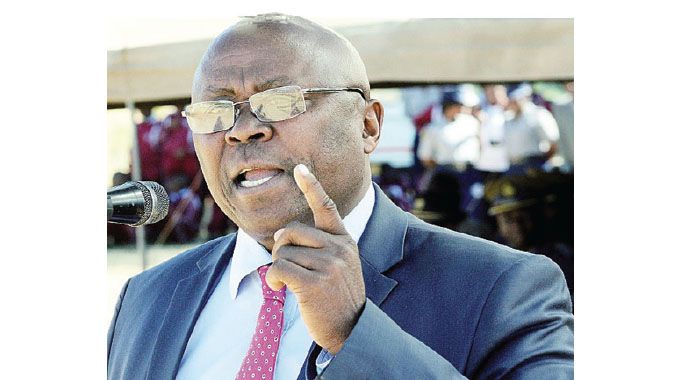
The Sunday News

Tedious Ncube
Hon. Cain Mathema is by no mistake one of the most accomplished philosophers of our time. He was born on 28 January 1949 at Sipepa in the Tsholotsho District, Matabeleland North province. He joined the armed liberation struggle in 1968 and was trained in Moscow, Russia between 1968 and 1969. At independence he joined the civil service and rose up the ranks until he became Deputy Secretary to Vice President Joshua Nkomo in 1991.
In the year 1995, Hon. Mathema was elected to be the Member of Parliament for the Tsholotsho Constituency and was subsequently appointed to be the Deputy Minister of Lands and Water. Apart from these lustrous political accolades, Hon. Mathema has contributed immensely to the body of knowledge through his award winning academic and creative works.
With more than 25 book publications and countless artistic works, Hon. Mathema has captured some of the most interesting debates that have taken place in Zimbabwe. Today I chose to review his book called ‘I defend the Zimbabwe Defence and security forces’. The book was published in 2017.
In the book, the author argues convincingly that the Zimbabwe’s defence and security forces are institutions created according to the Zimbabwean constitution, both the Independence Lancaster House Constitution, and the 2013 Constitution (Amendment No. 20). He explains how the Zimbabwe National Army, the Zimbabwe Air Force, the Zimbabwe Republic Police, the Zimbabwe Prisons and Correctional Services and the Central Intelligence Organisation are part of the Zimbabwean state.
In the book, Hon. Mathema argues that there is no neutral state anywhere in the world because a state is a class instrument of oppression and suppression of one class by another (the ruling class i.e. the class that owns the means of production), in exactly the same way the state of George Washington in the USA was a state of slave owners which promoted the economic interests of the rich US exploiting class against British economic interests and the interests of the US working class. In the book, Hon Mathema further defends Zimbabwe’s defence and security forces against the interests of western imperialism and those of its puppets in the form of the MDC and some racist capitalists in Zimbabwe.
Hon Mathema gives a serious philosophical premise to the very existence of defence and security institutions in Zimbabwe and their purpose. He suggests that, security institutions in Zimbabwe represent the essence of ‘new power’ which people in most countries will not understand or cannot understand. The nature of this new power which is attracting larger and larger numbers of Zimbabweans is the following;

“In the past the country was in one way or another governed by the colonialists or by the racist capitalists. But now for the first time the country is being governed by the classes and moreover by the masses of those classes which colonialism and capitalism formerly oppressed. The post-independent defence and security institutions were created to save Zimbabwe from the restoration of the power of colonialists and racist capitalists.”
In essence the purpose of Zimbabwe’s defence and security forces, is to preserve the legacy of the liberation struggle. By way of clarification I should point out that the liberation struggle is founded on principles of justice, equality and democracy.
The legacy of the liberation struggle is even stated as the founding value of Zimbabwe’s current constitution. In any case, the primary function of the Zimbabwe defence and security institutions is to protect Zimbabwe, its people, its national security and interests and its territorial integrity.
The Zimbabwe defence and security institutions are obliged to respect fundamental rights and freedoms of all persons and are expected to uphold the constitution as they have always done. Some of the founding values of the Zimbabwe’s defence and security institutions include patriotism, professionalism, nationalism and subordination to civilian authority as established by the country’s constitution.
It is particularly these principles which have guided the activities of Zimbabwe’s defence and security institutions and have underpinned their contribution towards the achievement of political stability in Zimbabwe. The achievement of political stability has also made it possible for the country to contribute towards the promotion of peace and security within the wider southern African region.
In conclusion, what is even more interesting about this book, is how the author explicitly shows the viability of Marxism as a theory to unpack phenomena. The author somehow suggests that the task of philosophy is not to provide answers, but to show how the way we perceive a problem can itself be part of the problem.
This holds true about the situation obtaining in Zimbabwe today, 30 or 40 years ago we were debating what the future will be: Socialist, Communist, Capitalist or whatever. Today, nobody even debates these issues. We all silently accept that global capitalism is here to stay and in so doing we accept all that comes with it.
Tedious Teddy Ncube is a Political scientist and Public Policy Analyst



